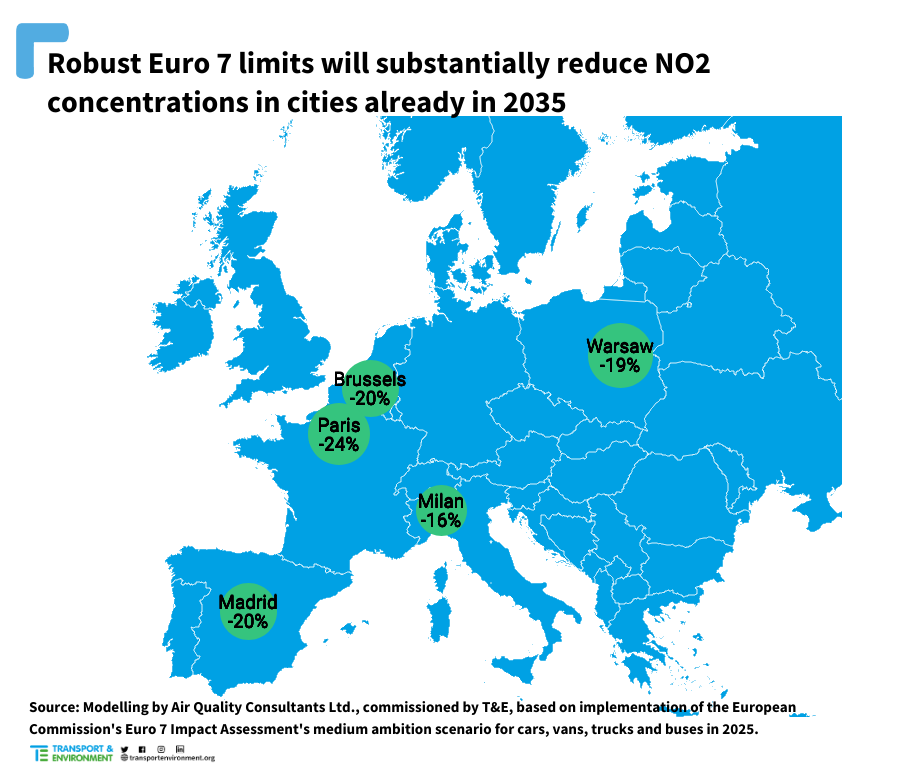One of the main claims made by carmakers opposing the introduction of Euro 7 standards, is that they won’t significantly improve the quality of the air we breathe. New research commissioned by Transport & Environment and carried out by Air Quality Consultants debunks this.

The results show that aligning car and truck NOx pollution limits with robust Euro 7 limits (i.e. 30mg/km for cars, 350 mg/kWh cold limit and 90 mg/kWh hot limit for trucks-which were found to be the optimal policy option by the Euro 7 Impact Assessment) will reduce NO2 pollution from road transport in Brussels, Madrid, Milan, Paris and Warsaw by around 50% by 2035. This will result in up to 24% lower concentrations of toxic NO2 in pollution hotspots in those cities in 2035.
The study also shows that without Euro 7 or other actions to reduce pollution such as more stringent low- and zero-emission zones, Brussels, Madrid, Paris and Warsaw are unable to comply with the NO2 limits proposed by the revision of the Ambient Air Quality Directive until after 2035.
In addition, greater ambition on brake pollution limits could also rapidly accelerate reductions in particle pollution from brakes. A brake particle limit of 3mg/km in 2025 instead of 7 mg/km in 2025 and 3 mg/km in 2035 would almost double the reduction in brake particle pollution from 19% to 34% already in 2030.
Overall, the results show that a robust Euro 7 delivers substantial improvements in air quality on top of the car and truck CO2 standards.


